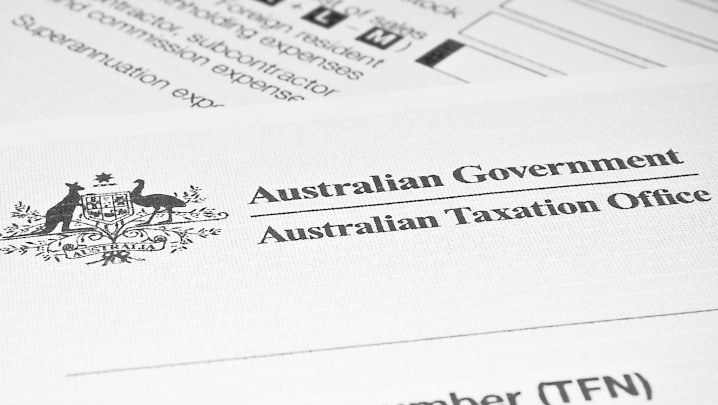As part of the 2021-22 Budget, the Federal Government announced a proposal that would enable small business entities (including sole traders) with an annual turnover of less than $10 million to apply to the Administrative Appeals Tribunal (AAT) to “pause or modify” ATO debt recovery actions where the debt is being disputed in the AAT.[1] The proposed changes to the jurisdiction of the AAT will specifically allow these businesses to seek a stay on the enforcement of ATO debt recovery actions, garnishee notices and the recovery of General Interest Charge, or related penalties until the underlying dispute is resolved by the AAT.[2]
The reasoning for this proposal was to seek to decrease the expense and time that would otherwise be incurred by these businesses if required to seek relief through the court system.[3]
The Current System
Currently, the basic process that must be followed by taxpayers in disputing tax assessments is as follows:
- First, the taxpayer must object to the assessment,[4] which triggers an internal review process that is undertaken by the ATO.
- The time limit for the objection is usually two years from the date the notice of assessment was issued.[5]
- If the taxpayer is ‘dissatisfied’ with the ATO’s internal review decision, they can either:
- To be ‘dissatisfied’ with a decision goes beyond the ordinary meaning of the term and concerns the legal effect of the decision on the taxpayer, not a mere lack of satisfaction with the decision.[8] The meaning of ‘dissatisfied’ was considered by the Full Court in CTC Resources NL v FCT (1994) 27 ATR 403, where the Honourable Gummow J held as follows:[9]
“…It is a dissatisfaction with the absence of a favourable decision upon
the objection which would, if now rectified by the court, place the party in the
position for the administration of the taxation laws which should have applied
if the ruling had been made by the Commissioner in the terms sought. A mere
curiosity or interest in having a formal ruling by the Commissioner for some
collateral commercial purpose of the applicant is not sufficient to amount to
‘dissatisfaction’ in the relevant sense.”
Under the current regime, a taxpayer’s liability is not suspended while review (or any subsequent appeal) proceedings are on foot. This is because s14ZZB(1)(a) of the Tax Administration Act 1953 (Cth) (Act) provides that the AAT’s jurisdiction to grant a stay does not extend to tax assessment decisions.[10]
Currently, the only recourse that I taxpayer can seek is:
- for the Commissioner of Taxation to suspend debt recovery action[11] (although the AAT cannot currently legally require this); or
- to apply to the FCA for a stay of the decision, which is a time-consuming and often very costly process.
Conclusion
While the proposed changes to the AAT’s jurisdiction may appear at first glance to provide a more cost-effective and expedient way of seeking a stay on ATO enforcement action, whether they will actually do so is another question. If the proposed legislative changes are to merely change for example, s14ZZB(1)(a) of the Act, the jurisdiction that would be granted to the AAT would still be discretionary, and the AAT would be bound to take a similar approach to the FCA in deciding whether or not to grant a stay in the circumstances.
In practice, the FCA gives weight to the policy priority provided by tax legislation to the recovery of revenue of the finalisation of objections and appeals.[12] In other words, just because a taxpayer disputes a debt does not mean a stay will be granted. Factors such as the merits of the dispute, an extreme personal hardship or abuse of the Court’s process are some of the facts that may also be considered in the granting of a stay. It is important to note that the power to grant a stay with respect to tax assessment decisions is exercised sparingly and the onus is on the taxpayer to justify it.[13]
While it may be a step in the right direction, the difficulties to be encountered by eligible taxpayers in seeking relief will likely remain the same. In our view, it remains to be seen whether this will have any practical impact upon these taxpayers’ reviews of ATO assessments.
[1] The Hon Josh Frydenberg MP, Senator the Hon Michaelia Cash, The Hon Stuart Robert MP, ‘Making it easier for small business to pause debt recovery action’, Treasury joint media release, 8 May 2021.
[2] Ibid.
[3] Ibid.
[4] Income Tax Assessment Act 1936 (Cth) s 175A; Tax Administration Act 1953 (Cth) ss14ZU – 14ZZ .
[5] Ibid s14ZW(1)(aa)(i).
[6] Ibid ss14AA, 14ZAA – ZZM.
[7] Ibid ss14ZZ, 14ZZN – 14ZZS.
[8] See CTC Resources NL v FCT (1994) 27 ATR 403.
[9] Ibid, 408E.
[10] I.e., a reviewable decision or an extension of time refusal decision.
[11] The ATO also usually allows 50% of tax in dispute to be deferred until the case is resolved – see PSLA 2011/4.
[12] See Snow v Deputy Commissioner of Taxation (1987) 14 FCR 119, 139; Deputy Commissioner of Taxation v Warrick (No 2) (2004) 56 ATR 371 [105].
[13] Ibid.
